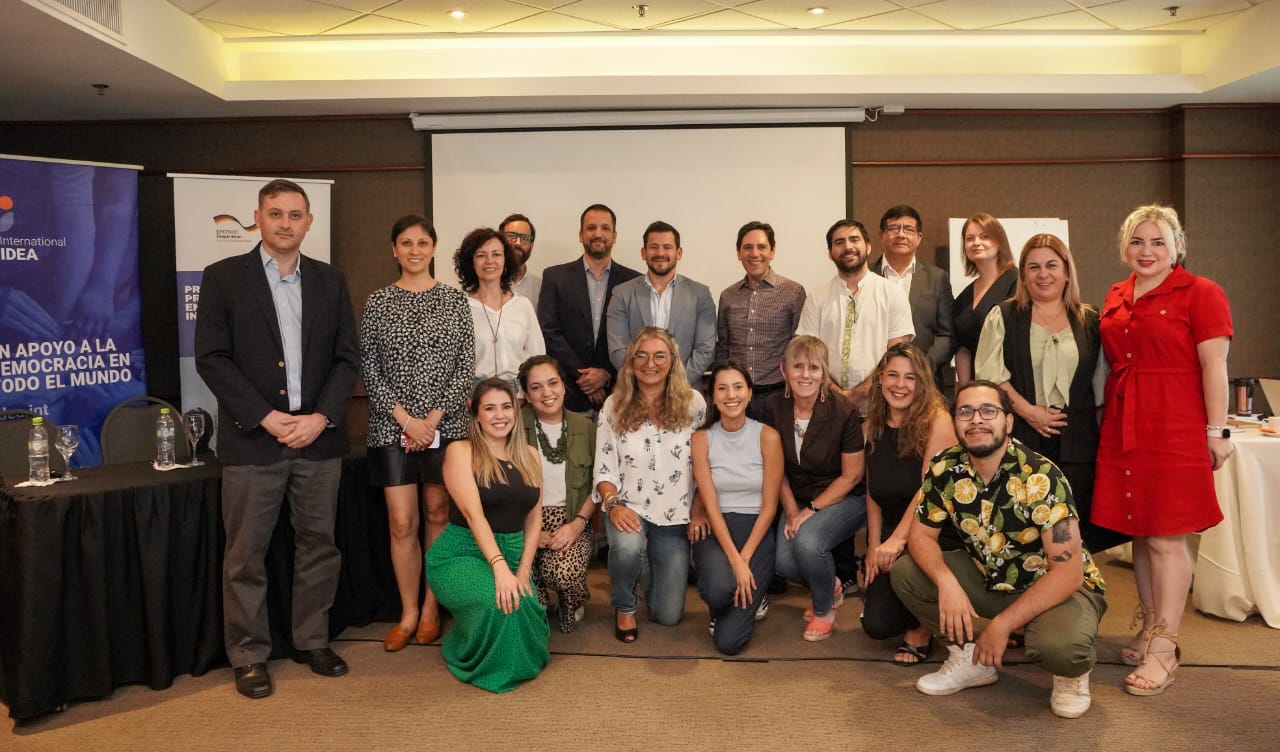Tunis, Tunisia | The National Constituent Assembly (NCA) was elected in 2011 and included 59 women out of 217 members. During the three-year rule of the NCA, the number of female members grew from 59 to 67 in 2014, as all male members of the government who left their posts were replaced by the candidate succeeding them on their respective list (built using a zip list system where male and female candidates alternate down the list). In October 2014, the Assembly of the Representatives was elected, replacing the NCA and includes 69 women out of 217.
The International IDEA and NIMD “Respect for Women’s Political Rights: Participation and Leadership of Women in Politics in Tunisia” programme was launched in Tunisia in April of 2014 - with an objective to address the factors behind the low presence and leadership of women in political parties in Tunisia. It also aims to contribute to the reduction in the number and type of barriers that impede women’s entry into, and retention in political parties.
During the first year of the International IDEA and NIMD programme, the implemented activities aimed to:
- Support women candidates for the 2014 legislative elections
- Document the experience of the female members of the National Constituent Assembly (NCA) during the constitution building process
- Provide platforms of communication and exchange between the first and the second generation of female Parliamentarians.
The workshop on “Lessons Learned by NCA Female Members” was particularly informative as it highlighted their experiences in participating in the constitution building process and as political representatives. Participants confirmed that their desire to participate in the Constitution drafting process was based on their struggles, political beliefs, and aspirations. Through their presence in the NCA, the women wished to consecrate the values and principles that they believe in and that they have been defending since they started their public and political lives in the new Constitution:
- peaceful transfer of power
- right to dissent
- freedom of expression and thought
- right to life
- women's rights
- children's rights
- rights of the people with special needs
- the principle of equality between the regions
The “mothers” of the Constitution – as they like to be called - said they faced various internal and external difficulties throughout their time in the NCA.
The main internal difficulties discussed included a lack of or weak technical support provided by either their political parties or the Assembly; difficulty in reconciling the constitutional and legislative functions and the representational function and the inability to meet the different and various demands of the people. This caused the female MPs to feel pressured and become depressed, creating a negative impact on their families.
The external difficulties cited by the female members of the NCA pertain to media, political parties, the ethical crisis prevalent in the society and the legal framework. For instance, media did not cover the contributions of female members of the NCA while political parties did not provide psychological or financial support for the female MPs who came from far-off regions. Due to this, many members subsequently had to change their residences and leave their children and families in their regions without the same level of care, particularly in cases where the woman was the sole caregiver. This resulted in many cases of personal and financial problems due to the continuous traveling of the female MP from her governorate to the capital to her governorate.
The participants in this workshop confessed that many female MPs suffered from harassment, assault, insult, and denigration from male and female citizens, either directly or through social media. These practices were meant either to attack them personally or to attack the political party to which they belong. They added that women were subject to these practices more often than men and noted that many of the female members of the NCA filed claims to prosecute those who targeted them. Unfortunately, they discovered that there is a legislative gap in many fields, and they could not pursue the claims in many cases.
Despite the encountered difficulties and the political bipolarization prevalent during the constitution building process, all participants agreed that their experience was mostly positive and summarized it as follow:
- My experience was “wonderful”
- I am proud of my experience, including its positive and negative aspects
- My experience was extraordinary
- My experience was bitter, but rich and very beautiful
- My experience was unique
- My experience was rich and very useful
- My experience was pioneering but difficult
- My experience was successful and pioneering despite the fears I had at the beginning


